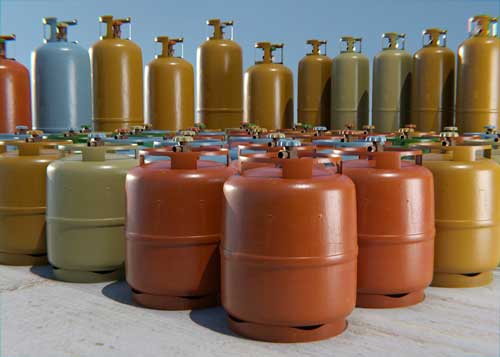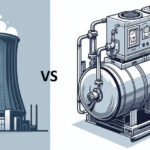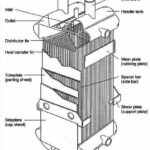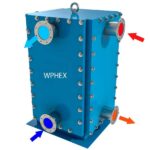Liquified petroleum gas content, uses and applications are discussed in this short article
Liquified petroleum gas (LPG) Content
LPG, or liquefied petroleum gas, is a mixture of gases that is primarily composed of propane and butane, with smaller amounts of other hydrocarbons, such as ethane, pentane, and isobutene. The exact composition of Liquefied petroleum gas (LPG) can vary depending on its source and production method, but in general, it can contain:
- Propane: Propane is a colourless, odourless gas that is widely used as a fuel for heating and cooking, as well as for refrigeration and air conditioning.
- Butane: Butane is another colourless, odourless gas that is often used as a fuel for portable stoves and lighters.
- Ethane: Ethane is a colourless, odourless gas that is often used as a feedstock for the production of chemicals and as a fuel for power generation.
- Pentane and isobutene: These are other hydrocarbons that may be present in smaller amounts in LPG.
In addition to these main components, LPG can also contain small amounts of impurities, such as water, sulphur compounds, and nitrogen compounds. The concentration of these impurities can affect the quality and performance of LPG as a fuel, so it’s important to carefully control their levels during production and storage.
Uses of Liquefied petroleum gas (LPG)
Liquefied petroleum gas (LPG) is a versatile fuel that can be used in a variety of applications. Some common uses of Liquefied petroleum gas (LPG) include:
- Residential cooking and heating: LPG is commonly used in households as a cooking fuel, providing a clean and efficient source of heat for stoves, ovens, and grills. LPG is also used for heating in homes that are not connected to a natural gas supply.
- Industrial and commercial applications: LPG is used in many industrial and commercial settings as a fuel for heating, powering equipment, and fuelling forklifts and other vehicles. LPG is also used in some manufacturing processes.
- Transportation: LPG can be used as a fuel for vehicles, including cars, buses, and trucks. LPG vehicles produce fewer emissions than gasoline or diesel vehicles, making them a cleaner alternative.
- Agriculture: LPG is used in farming for crop drying, weed control, and heating greenhouses. It is also used in irrigation systems and in powering farm equipment.
- Power generation: LPG can be used as a fuel for power generation, especially in remote areas that are not connected to a power grid.
- Refrigeration: LPG is used as a refrigerant in some systems, such as in portable refrigerators and air conditioning units.
- Medical: LPG is also used in some medical applications, such as for anaesthesia and in oxygen therapy.
Industrial applications of Liquefied petroleum gas (LPG)
Here are some examples of industrial applications of Liquefied petroleum gas (LPG):
- Heating and powering industrial processes: Liquified petroleum gas is used as a fuel in a wide range of industrial processes, such as drying, baking, and curing in food and beverage production, as well as powering boilers, furnaces, and other industrial equipment.
- Forklifts and other vehicles: Liquified petroleum gas is commonly used as a fuel for forklifts and other vehicles in industrial settings, as it is a clean-burning and efficient alternative to gasoline or diesel.
- Cutting and welding: Liquified petroleum gas is used as a fuel for cutting and welding in metal fabrication and other manufacturing processes. It is often preferred over other fuels due to its ease of use and reliability.
- Asphalt production: Liquified petroleum gas is used in asphalt production, as it provides a clean and efficient fuel source that can be easily controlled to achieve the desired temperature and consistency.
- Refining and petrochemicals: Liquified petroleum gas is a valuable feedstock for the refining and petrochemical industries, as it can be used as a raw material for producing ethylene, propylene, and other chemical products.
- Glass production: Liquified petroleum gas is used in glass production, where it is used as a fuel for melting and refining glass.
In general, Liquefied petroleum gas (LPG) is a versatile and efficient fuel that can be used in a wide range of applications, providing a reliable and convenient source of energy.












